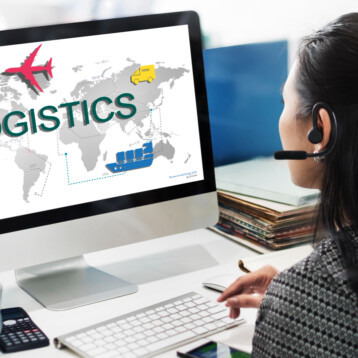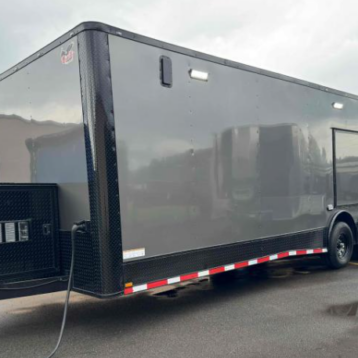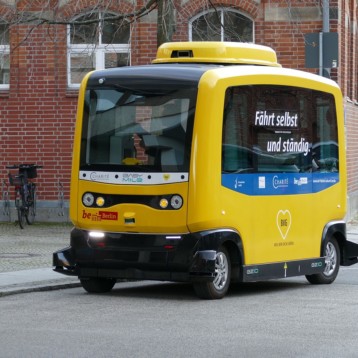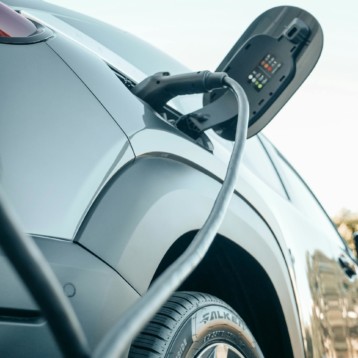The commercial trucking industry, often called the backbone of global commerce, is undergoing a remarkable transformation fueled by groundbreaking technological advancements. From electric vehicles (EVs) and autonomous trucks to cutting-edge safety systems, innovation is reshaping the landscape of commercial trucking. These advancements not only promise a more sustainable and efficient industry but also hold the potential to redefine the way goods are transported across the world.
Additionally, the integration of mobile command center trailer equipped with advanced communication and monitoring technologies is enhancing logistical operations, allowing for real-time tracking and management of fleets, further revolutionizing the commercial trucking industry.
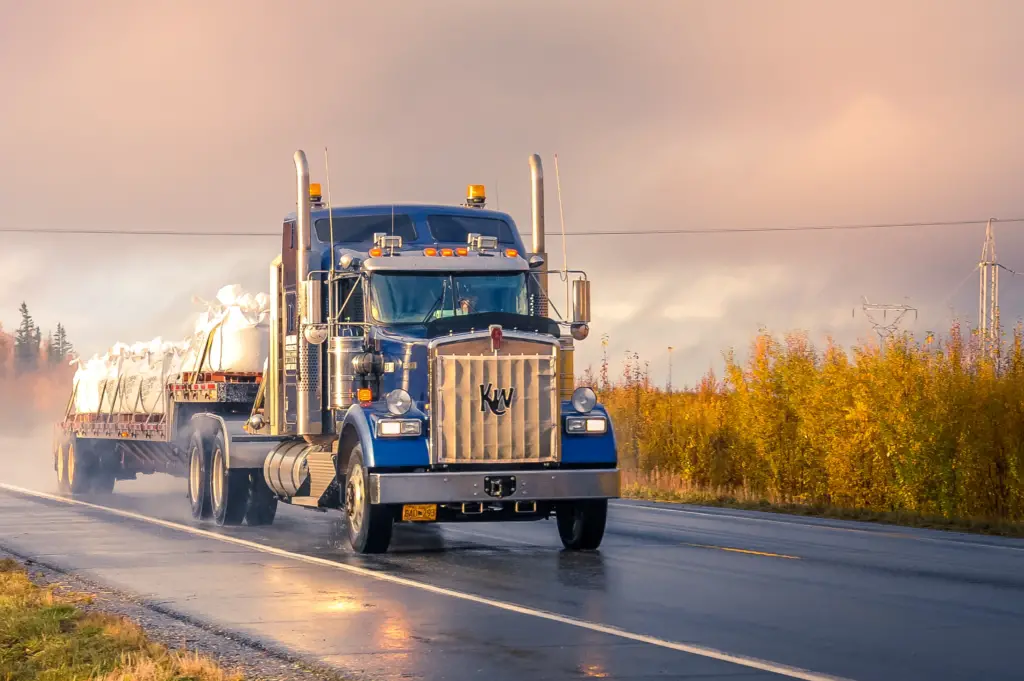
Electric Vehicles
The transition to electric vehicles in the commercial trucking sector is not merely a trend; it’s a fundamental shift toward sustainability. Electric trucks are gaining traction due to their numerous advantages over traditional diesel-powered counterparts.
Reduced Emissions and Air Quality Improvements: Electric trucks produce zero tailpipe emissions, improving air quality in urban areas and reducing greenhouse gas emissions. This shift aligns with global efforts to mitigate the impact of transportation on the environment.
Lower Operating Costs: While the initial purchase cost of electric trucks may be higher, their operational costs are considerably lower due to the reduced cost of electricity compared to diesel fuel. Additionally, electric trucks have fewer moving parts, leading to reduced maintenance expenses.
Innovations in Charging Infrastructure: Charging infrastructure for electric trucks is expanding rapidly, enabling long-haul journeys. Fast-charging technology is improving, reducing downtime for drivers, and enhancing overall efficiency.
Autonomous Vehicles: Navigating the Road Ahead
The idea of self-driving trucks once seemed like science fiction, but it’s now on the brink of becoming a reality. Autonomous trucks have the potential to reshape the trucking industry by enhancing safety, efficiency, and productivity.
Enhanced Safety: Autonomous trucks have advanced sensors, cameras, and radar systems that provide a 360-degree view of the vehicle’s surroundings. These technologies help prevent accidents caused by human error, such as distracted driving and fatigue.
Efficiency and Productivity: Autonomous trucks can operate 24/7 without needing mandated rest breaks, leading to increased efficiency and faster delivery times. Additionally, platooning technology allows multiple trucks to travel closely together, reducing air resistance and improving fuel efficiency.
Challenges and Regulatory Hurdles: While the promise of autonomous trucks is immense, there are still regulatory challenges to overcome. Laws and regulations regarding self-driving vehicles vary from region to region, and building public trust in the safety of autonomous technology remains a hurdle. California recently placed restrictions on testing fully autonomous vehicles over 10,000 pounds, requiring a human operator.
Safety Technology: A Guardian on the Road
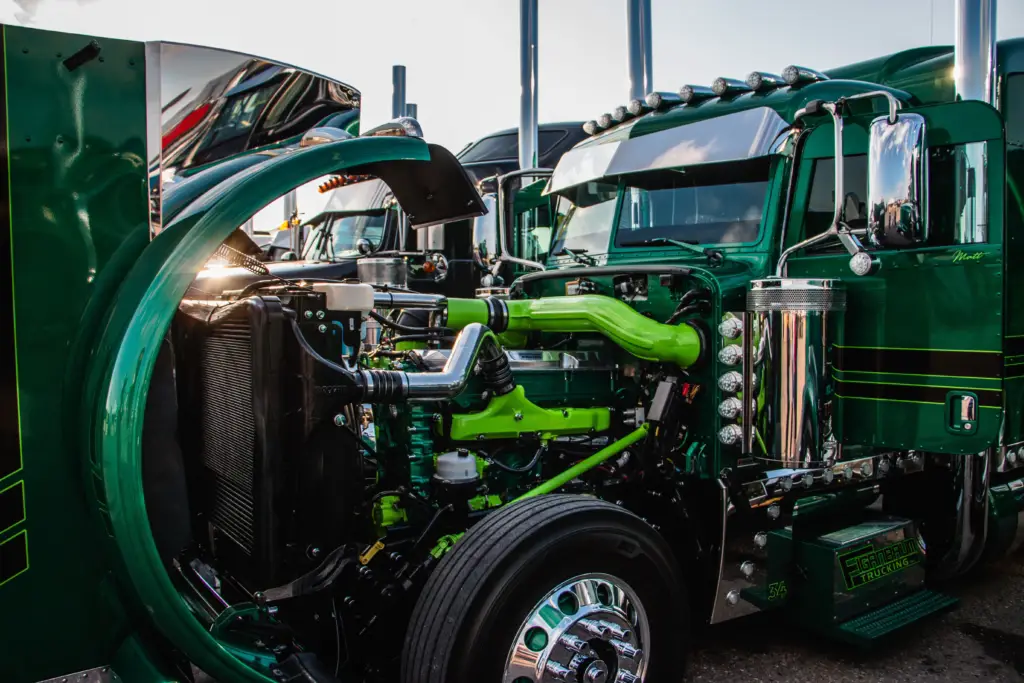
Ensuring the safety of truck drivers, cargo, and other road users is a paramount concern in the trucking industry. Technological advancements are playing a pivotal role in enhancing safety on the road.
Collision Avoidance Systems: Advanced collision avoidance systems utilize sensors and cameras to detect potential collisions and automatically apply brakes or alert the driver. These systems have proven to reduce collisions, saving lives, and preventing injuries.
Lane Departure Warning and Assistance: Lane departure warning systems alert drivers when they unintentionally drift out of their lane. Lane-keeping assistance systems can even gently steer the vehicle back into the lane, preventing accidents due to drifting.
Driver Monitoring Technology: Monitoring systems track driver behavior and attention. If drivers show signs of drowsiness or distraction, the system can alert them to refocus on the road or take corrective action.
Sources of Change
Government regulations pushing for cleaner emissions and improved road safety have spurred manufacturers to explore innovative solutions. The ongoing struggle with driver shortages has also motivated the industry to develop autonomous systems to supplement human drivers.
Major tech companies, automakers, and logistics giants are partnering to expedite research and development in this sector. These collaborations bring together expertise in software development, vehicle manufacturing, and supply chain management, accelerating the pace of technological advancement.
The advancements in commercial trucking technology are reshaping an industry that is the lifeblood of global trade and commerce. Electric trucks lead the charge toward a more sustainable future, while autonomous vehicles promise enhanced safety and efficiency. Safety technology innovations act as a guardian on the road, preventing accidents and saving lives. As these technologies evolve, the trucking industry stands poised to embark on a new era of innovation, productivity, and environmental responsibility.


